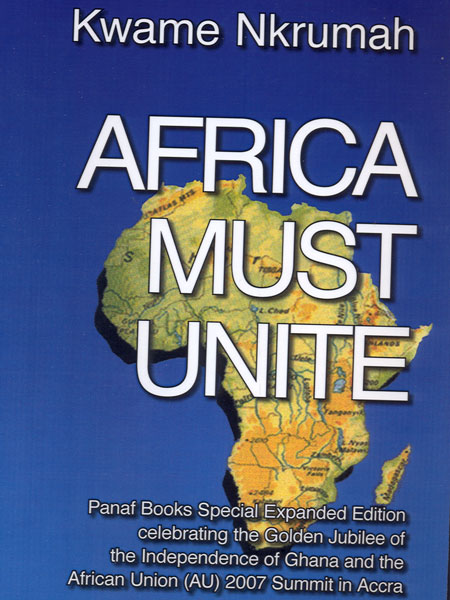
Author: Kwame Nkrumah
Publisher and Date of Publication: Panaf, London (Special Edition); 1997 (First published 1963) Paperback; 253
In this book, Kwame Nkrumah spells out the tactics and strategy for the African Union.
His argument is that until and unless African countries unite at the political, economic, defence and economic fronts, the continent and its people will have no true freedom and prosperity.
Divided up into twenty-one chapters, Nkrumah gives an overview of the African society in the opening chapter. He follows it up with an incisive analysis of the colonial experience and its impact on the continent. He then examines the role of the intellectual vanguard in the struggle for political independence. After that, he delves into the specific experience of Ghana's struggle for sovereignty, looks at the problems of sovereignty and then builds up his case for African unity. He contends that neocolonialism is a threat to the viability of the newly independent African states. He also cites examples of the United States of America and the former Soviet Union as examples of major unions of states in the world. In the final chapter, he marshals out arguments for what he describes as "Continental Government for Africa." There are two appendices. The first one is the full text of the address Kwame Nkrumah gave on the eve of the foundation of the Organization of African Unity on 25th May 1963. The second one is a text of address made by Julius Nyerere in Accra on 6th March 1997 on the occasion of Ghana's 40th independence anniversary.
Throughout the book, Nkrumah keeps harping on his passion - an African Union. To achieve this, he opines that African leaders must come together to diverse an overall economic planning on a continental basis, establish a unified military and defence strategy; a united foreign policy and diplomacy to give political direction to their joint effort for the protection and economic development of the continent.
"What is at stake is not the destiny of a single country but the freedom and destiny of the African continent, the unalterable prelude to the African Union and the fullest development of the many countries comprising the continent. Just as we are alive to the dangers of a world, which is half-slave, half-free, so we are alert to the perils of an African continent split between states that are wholly sovereign and states that are only half-independent. Such a pattern can only impede the real independence of Africa and its transformation into an industrialized continent exercising its rightful influence upon world affairs." (p.187)
He argues that the balkanization of the African continent serves the interest of the imperialists and not those of the African people. "The creation of several weak and unstable states of this kind in Africa, it is hoped, will ensure the continued dependence on the former colonial owners for economic aid, and impede African unity. This policy of balkanization is the new imperialism, the new danger to Africa." (a.179).
And the way out of this bog, he suggest, is unity of the diverse states on the continent.
"A point in our history has been reached where Africa's interests must be the prime concern of Africa's leaders. The safety and progress of every one of our states can be safeguarded only by the acceptance of this precept, which can best be promoted by our unalloyed unity. This means that where associations linking African countries with European powers cut across basic African interests at any level and offer impediments to the goal of union, they must be discarded, and rejected where are offered. In all relations with the world overseas, the key consideration must be not merely the superficial or even intrinsic advantage of such relationships for the given African country but the obligation to the African continent as a whole. However much we may protest our loyalty to the course of African freedom and our united destiny, our affirmations will be without value unless we accept this approach as the cardinal guide to our action,"(185)
Written in an engaging prose style, Africa Must Unite ought to be a companion for every African who believes in the emancipation of the continent.
The book is available at Timbooktoo Bookshop. Tel.4494345
Read Other Articles In Article (Archive)



